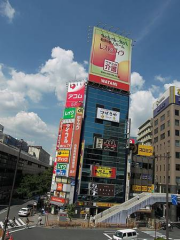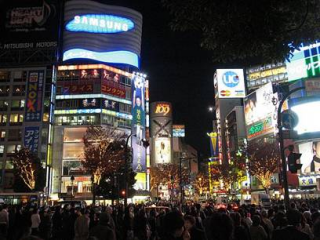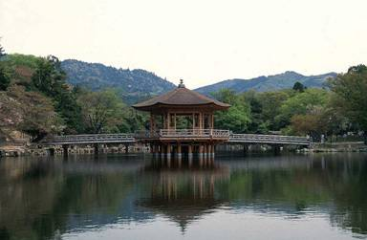

JAPAN



Basic info
Japan is an island nation in East Asia, located in the Pacific Ocean. It is often referred to as �Land of the Rising Sun� as the characters that make up Japan�s name mean �sun origin�. Japan is actually a cluster of 6,852 islands but 4 main islands make up nearly the whole of the land area. These islands are: Honshu, Hokkaido, Kyushu and Shikoku. Nearly all of the islands are mountainous and many of the mountains are actually volcanoes. Japan has a population of just over 127 million people, the 10th largest in the world. Japan is usually rainy, with high humidity, it is generally cool in the North to sub-tropical in the South. Northern Japan tends to have warm summers but cold, snowy winters. Central Japan has hot, wet summers and short winters and the Southwest has long hot summers but the winters are fairly mild. It is a typhoon prone country with late summer and early Autumn often getting lots of rain.
Why should I go to Japan?
There is quite simply something for everyone in Japan. From ancient temples to futuristic cities, the overwhelming hospitality of the Japanese to their amazing sushi, and even from heritage museums to the fun filled madness of Disney world! Despite having an expensive reputation is actually a fairly inexpensive place to travel. It is cheaper than most parts of North America and Western Europe, making it a perfect place to travel and a great place to do a bit of teaching. There is a very high demand for English teachers in Japan and it is increasing all the time.
What is there to see and do?
Tokyo is the capital city of Japan and not somewhere that you want to miss once you�re there. Known for it�s �out there� fashion and super-speedy technological advances, visiting Tokyo is a bit like stepping forward in time. The first things you are likely to notice are the big shiny shopping malls and the latest skyscrapers or other weird and wonderful and highly modern structures. But take a step back and you will see more traditional sights such as big family outings and thousands of fortunes all tied to a fence. The museums in Tokyo are not to be missed and range from the History of Tokyo, at the Edo-Tokyo museum, to learning about Japanese film director Miyazaki Hayao, at the Ghibli Museum.
Other notable things to do in and nearby Tokyo include going for Sushi in one of Tokyo�s many sushi restaurants; visiting Ueno Zoo, home to all the usual animals and a perfect place to take the kids; and Japan�s amusement park which dates back to 1853 and includes old style rides and shows.
Another couple of cities worth mentioning are Kyoto and Nara. Kyoto is one of the best cities in the world for culture, it has over 1600 Buddhist temples and over 400 Shinto shrines and plenty of traditional Japanese restaurants. Nara is similar but smaller and is full of World Heritage and other historically significant sites.
Akihabara electric town needs to be seen to be believed and is a must if you�re into technology. It is basically an enormous market, solely for electronics and sells everything from robots to computers that you probably won�t see in your own home country for years to come! The atmosphere is quite simply electric, with some quirky cafes around if you fancy a rest and the knowledge that you may be grabbing a bargain, as prices are often much cheaper than in the shops.
There are far too may interest points to mention but another couple worth visiting are Tsukiji fish market in Tokyo, the largest fish market in the world and Yakushima, a gorgeous island with scenic snow capped mountains and luscious hot springs.
How safe is it?
Japan is widely regarded as being a very safe and secure country. Petty crime such as pick-pocketing does happen, as with most places, but as long as you�re sensible i.e. don�t flash expensive belongings, keep personal belongings close to your body etc then you should manage to leave unscathed.
It is a relatively safe place for women travellers but incidents and attacks can and do occasionally happen. The main thing to do is simply to adhere to the same common sense that you would anywhere else. Don�t give out your address to anyone unfamiliar and avoid being on your own at night.
One more thing to look out for is earthquakes, as Japan is prone to them. If you experience a strong earthquake then try and find a doorway or hide underneath and table or desk. The best thing to do is to always follow emergency evacuation procedures and follow the locals to a safe area.
What qualifications or experience do I need to have? How do I know if I�m eligible?
All schools in Japan will require you to have a university degree, in any subject, and some will want you to have a TEFL certificate. Without this qualification you may find it hard to find work and the better (and better paid!) jobs go to those with a teaching qualification.
A teaching qualification will show that you�re dedicated and committed to teaching and will also help you feel a lot more confident once you�re in the classroom. You won�t last long if students start firing grammar questions at you and you don�t know what they�re talking about!
Please remember that to be officially qualified to teach, your course must be internationally recognised which means being at least 100 hours long and accredited by an independent accrediting body. If not, you may find it very difficult to find a school that will accept you. As convenient as they may seem at the time, weekend courses will not qualify you to teach.
Previous teaching experience is not essential in most schools in Japan; many of them will even have on the job training.
To get a visa to work in Japan you will need a degree and the sponsorship of a Japanese company. It is possible to enter on a tourist visa and then find a job once you�re there but if you find a company who will hire you in your home country then they are much more likely to sort out all your paperwork for you. Once you have a work visa you can renew it in Japan every year.
Are there any age restrictions?
There isn�t a strict upper age limit in Japan as a whole but the Japanese do tend to favour younger teachers and some jobs do state that they want people under 35 or 40. It is still always a good idea to check with your employer before you commit to a job.
What will I earn and what currency do they use?
The currency in Japan is the yen (� or JPY), pronounced �en� in Japan. The average salary for TEFL work is around �250,000 a month, which is equivalent to approximately �1,900 (or $3,000). It is usually possible to earn more with overtime though.
Your apartment will often be provided for you by your employer. However, if it isn�t then you should be prepared to spend between �50,000 to 100,000 on rent. Towards the higher amount if you are living in a large city or at the lower end if outside the city. Apartments are often provided unfurnished so that�s another cost to factor in. Sometimes your flights will also be included in your contract, usually upon completion of your contract, however this should not be depended on as it is not always the case.
Taxes for the rich are among some of the highest in the world but luckily on the salary you will be on, it will only be around 7%.
The cost of living in Japan is known as being very expensive. This is true to an extent as if you are not careful with your money then living costs can often take up most of your income. However, as with most places, it is possible to save money and get by on not much at all if you are careful. If you eat like the locals rather than in fancy westernised restaurants, and take public transport whenever you can then it is possible to live on not much at all.
What will the schools be like and what hours will I work?
The language schools in Japan are known as �Eikaiwa� schools, which translates as �English Conversation�. Your working week will be about 30 hours long (excluding any possible overtime), which will usually consist of 6 hours a day, 5 days a week; although there may be the odd 6 week day. Most lessons will be in the afternoons or evenings although this will be different for each employer.
The different types of schools you could end up in include private language schools, state and private primary/secondary schools, kindergartens and may include private tutorials or corporate in-house language programs. You will most likely be teaching children, who will be very eager to learn and excited to do so. They will want the lessons to be fun and interesting so employers tend to seek out enthusiastic and dynamic teachers.
Most of the work will be teaching conversation classes. One thing to bear in mind is that when it comes to the larger organisations, most of them will have their own syllabus that they will expect you to stick to.
Anything else I should know?
The Japanese are a very friendly race and employers may well invite you to take part in extra curricular activities out of work time. Of course this is up to you to decide but just be aware that declining such an invitation might be seen as being rude.












